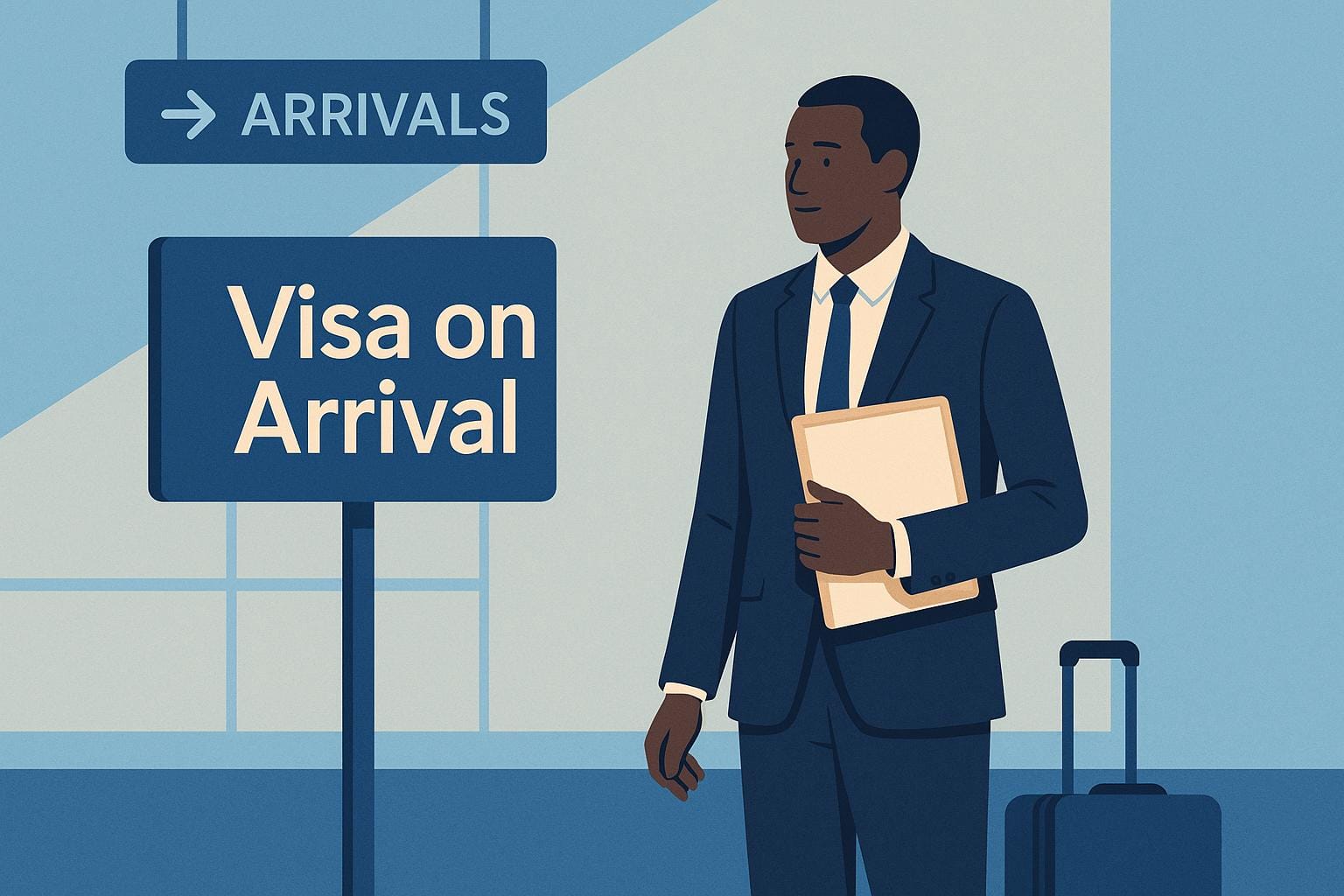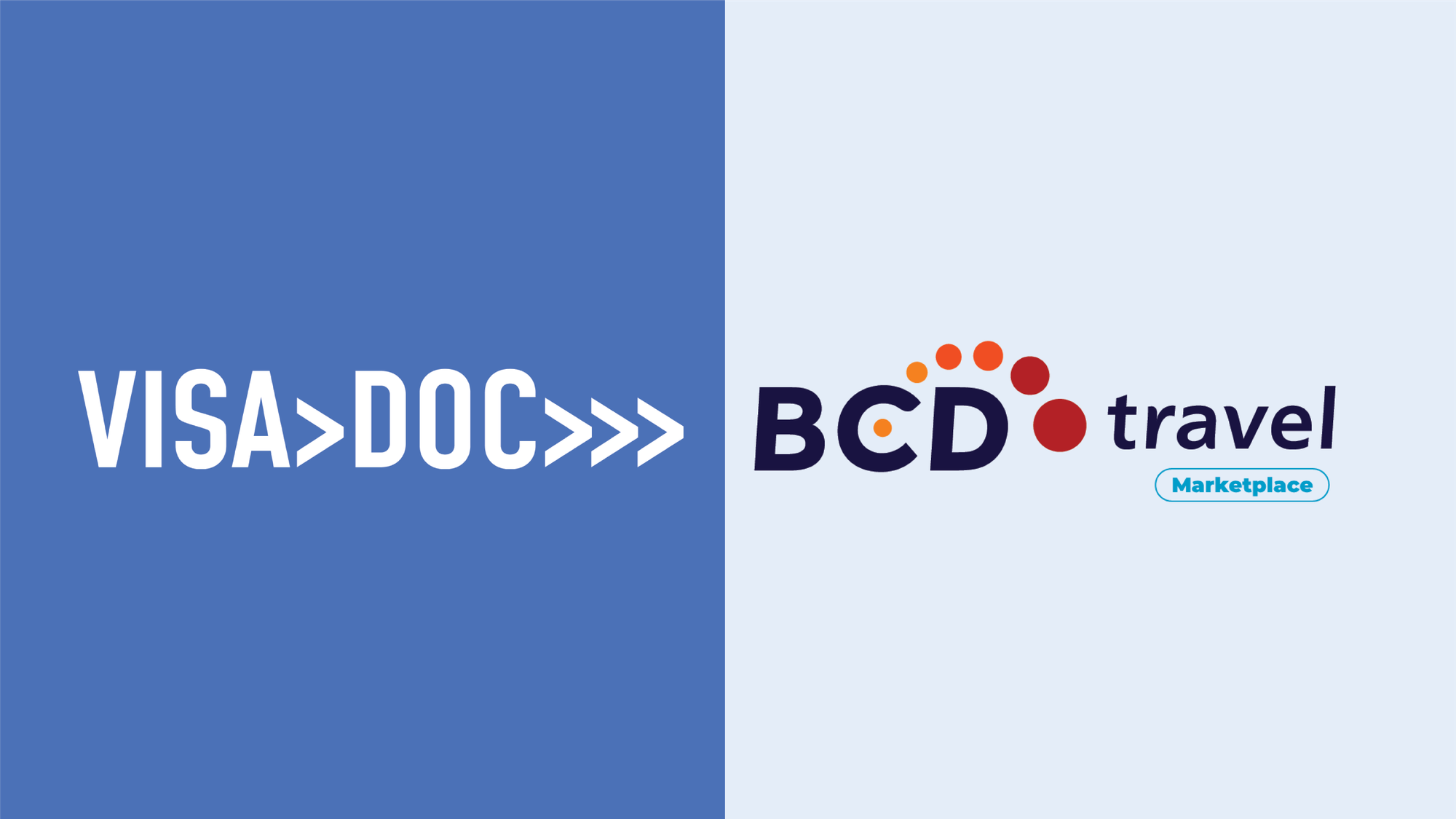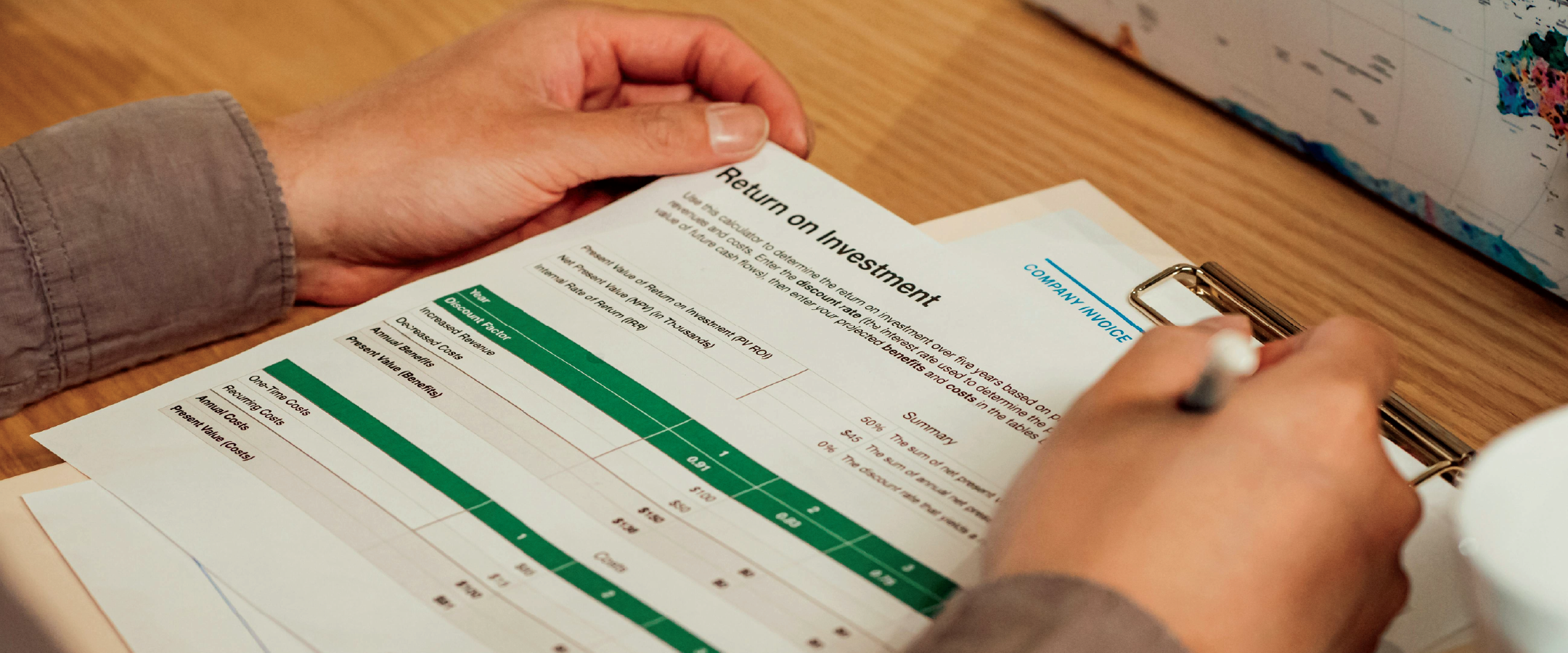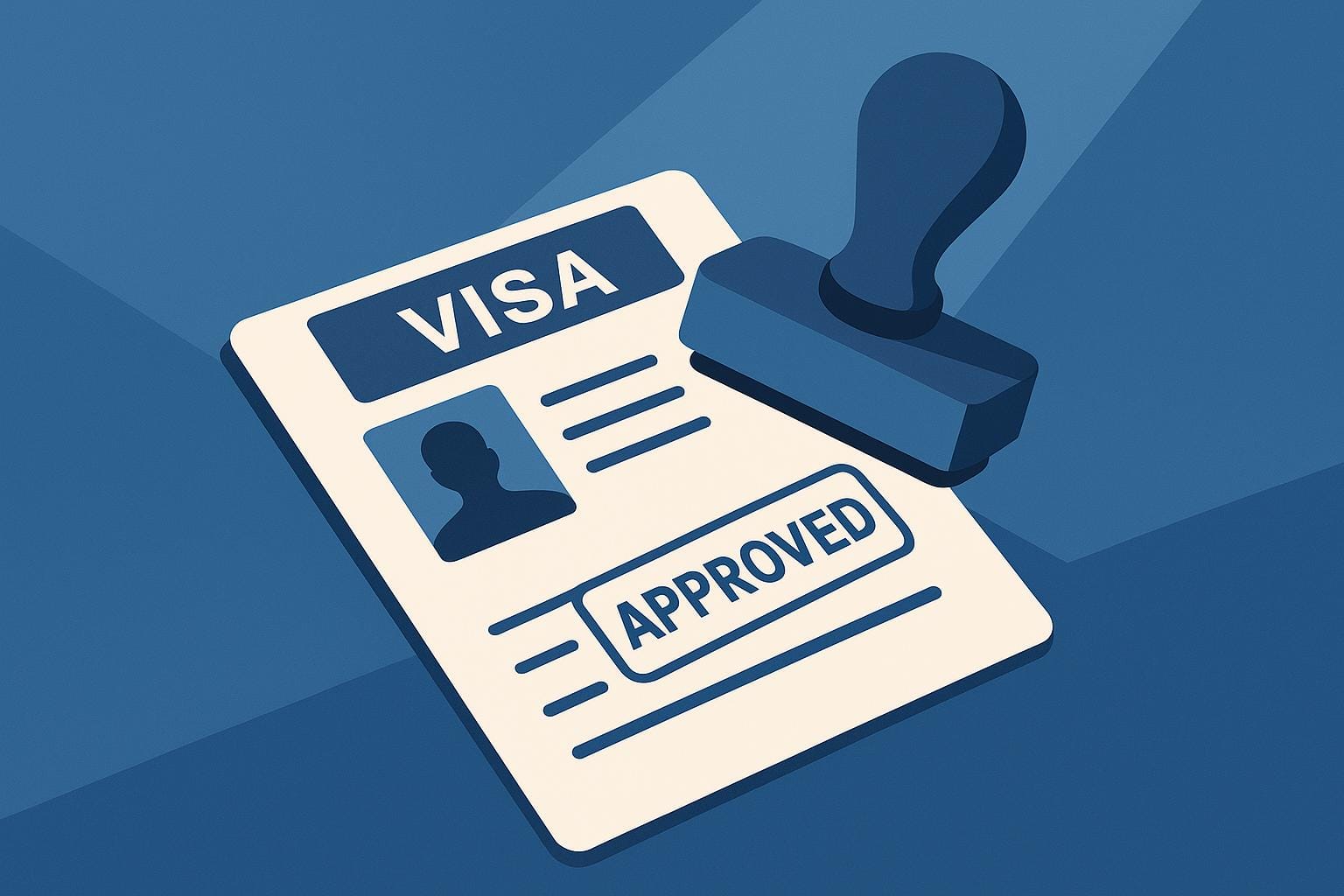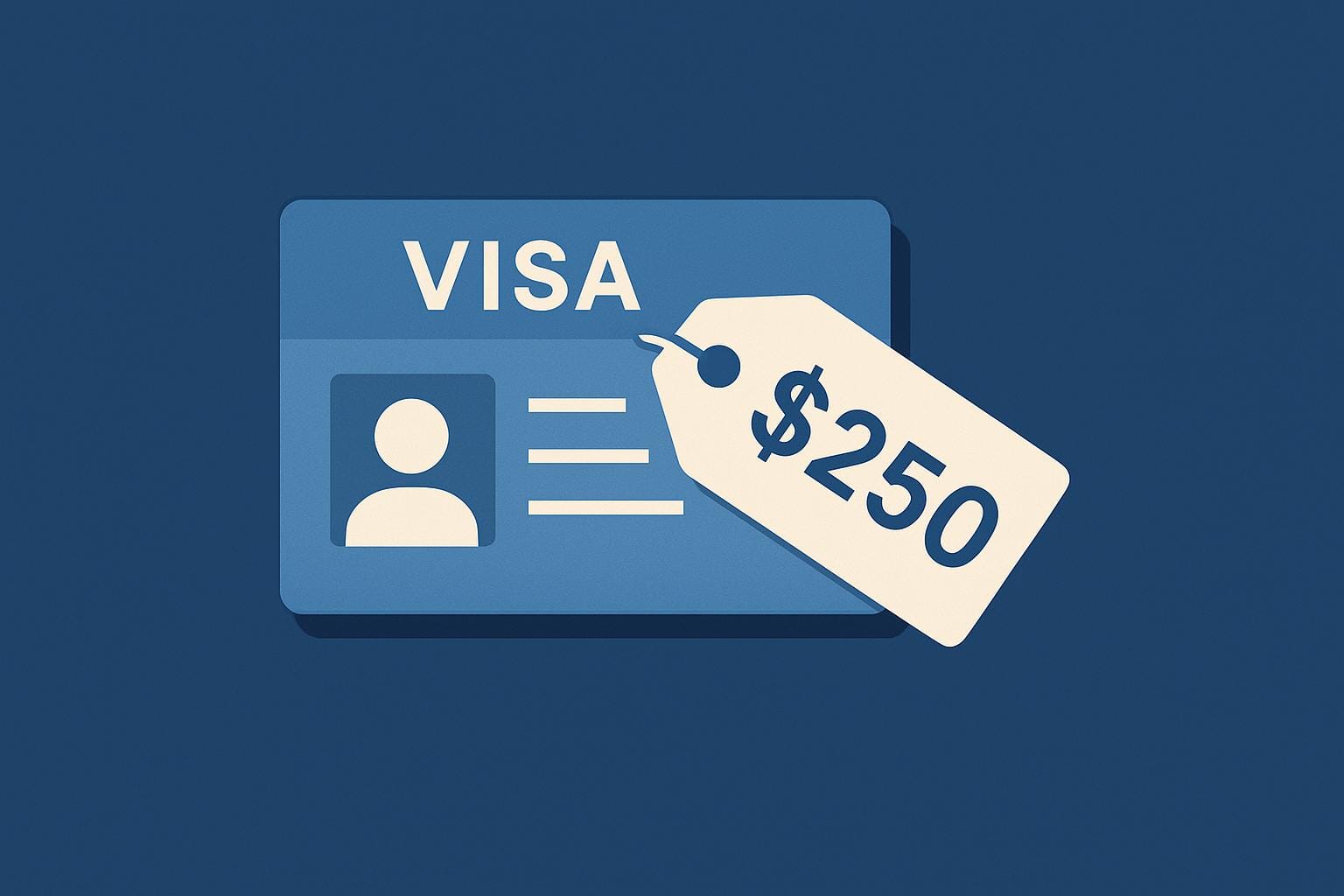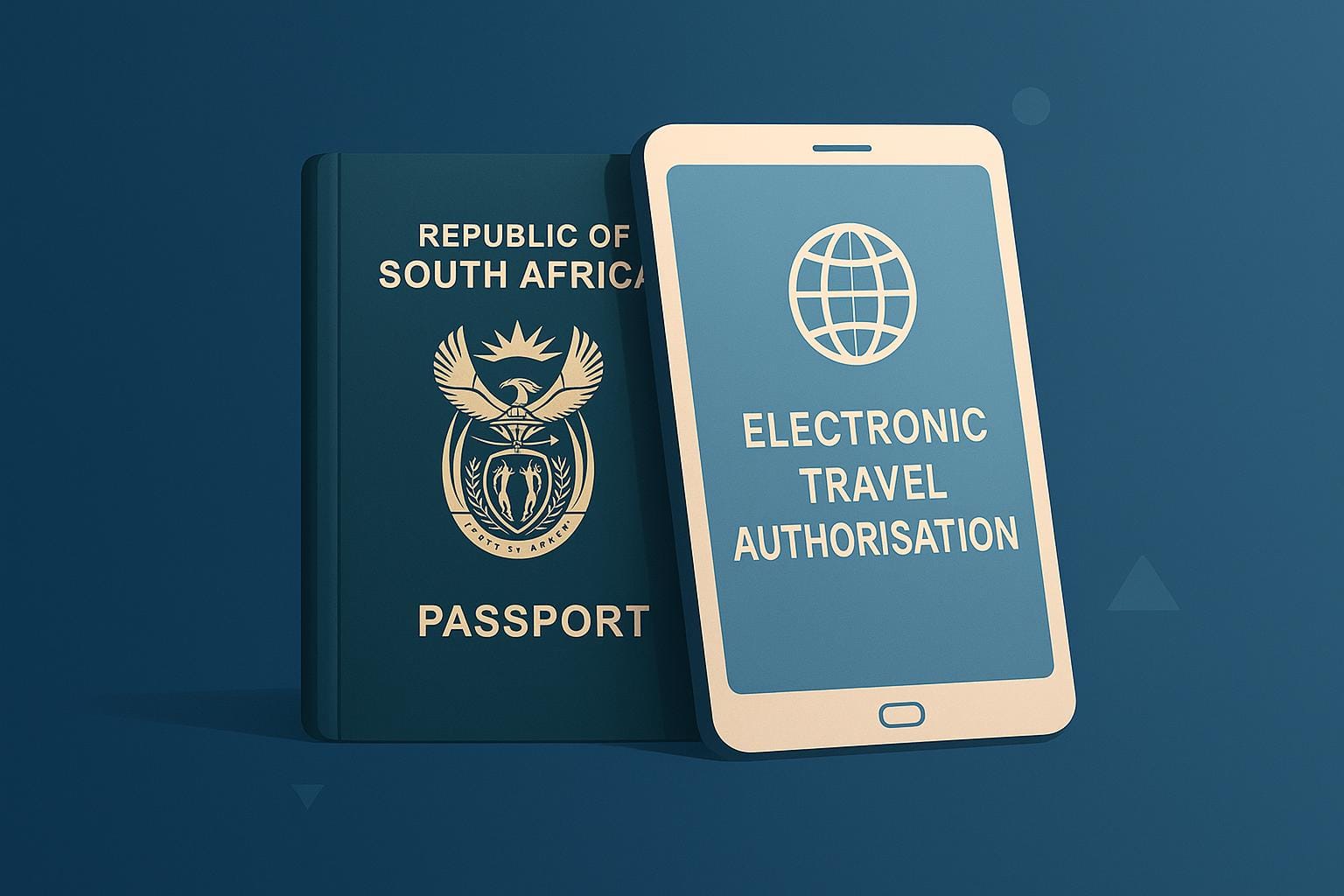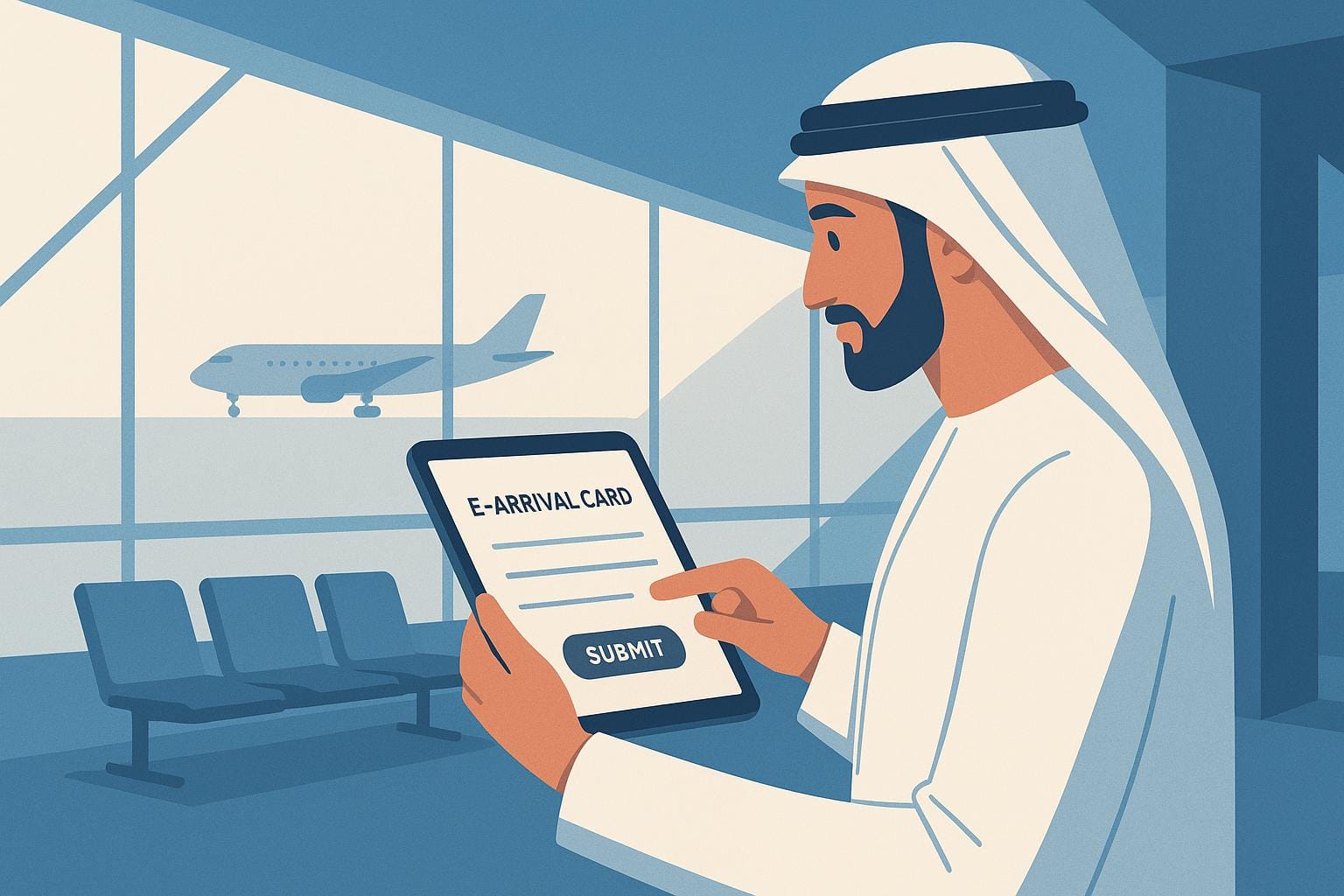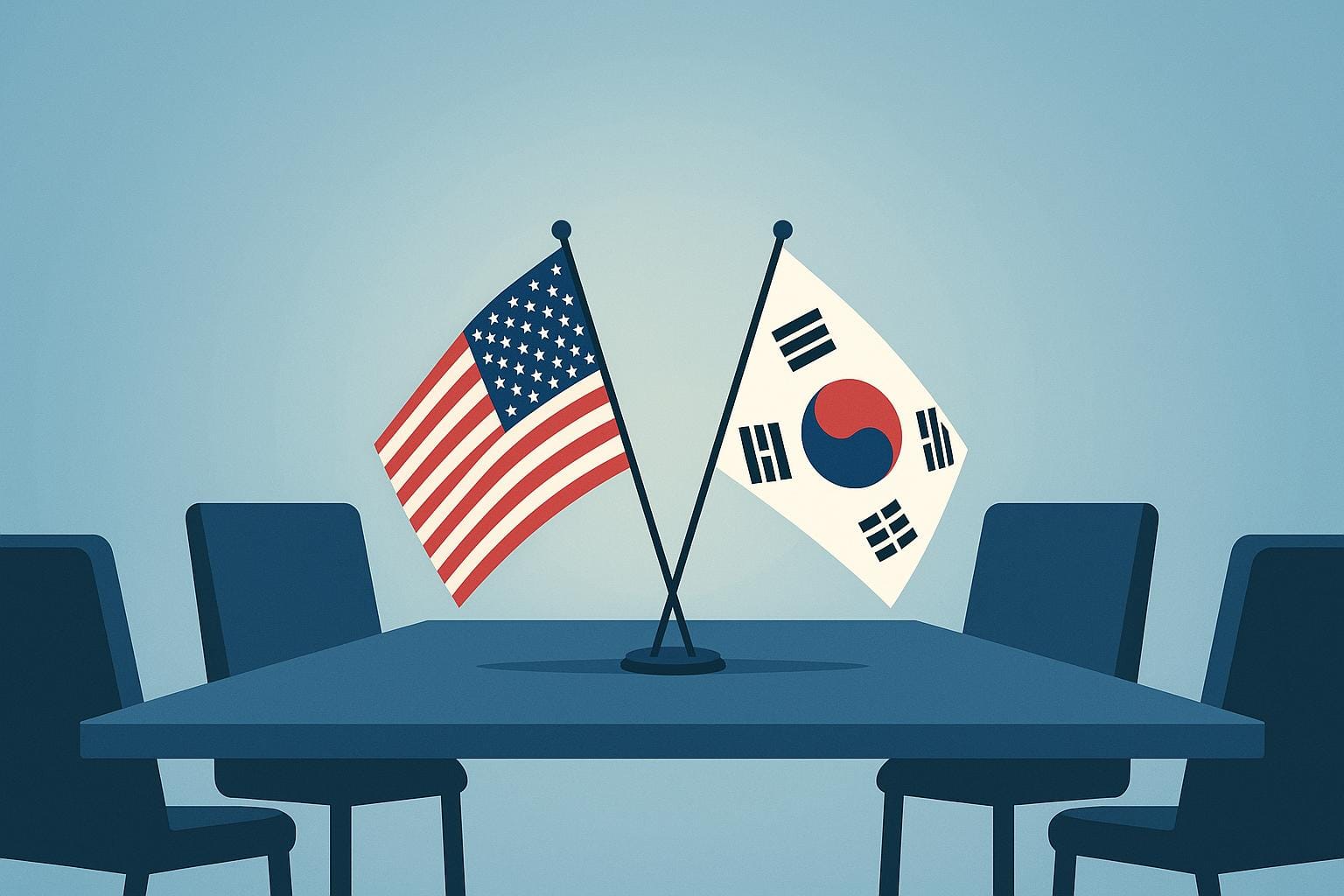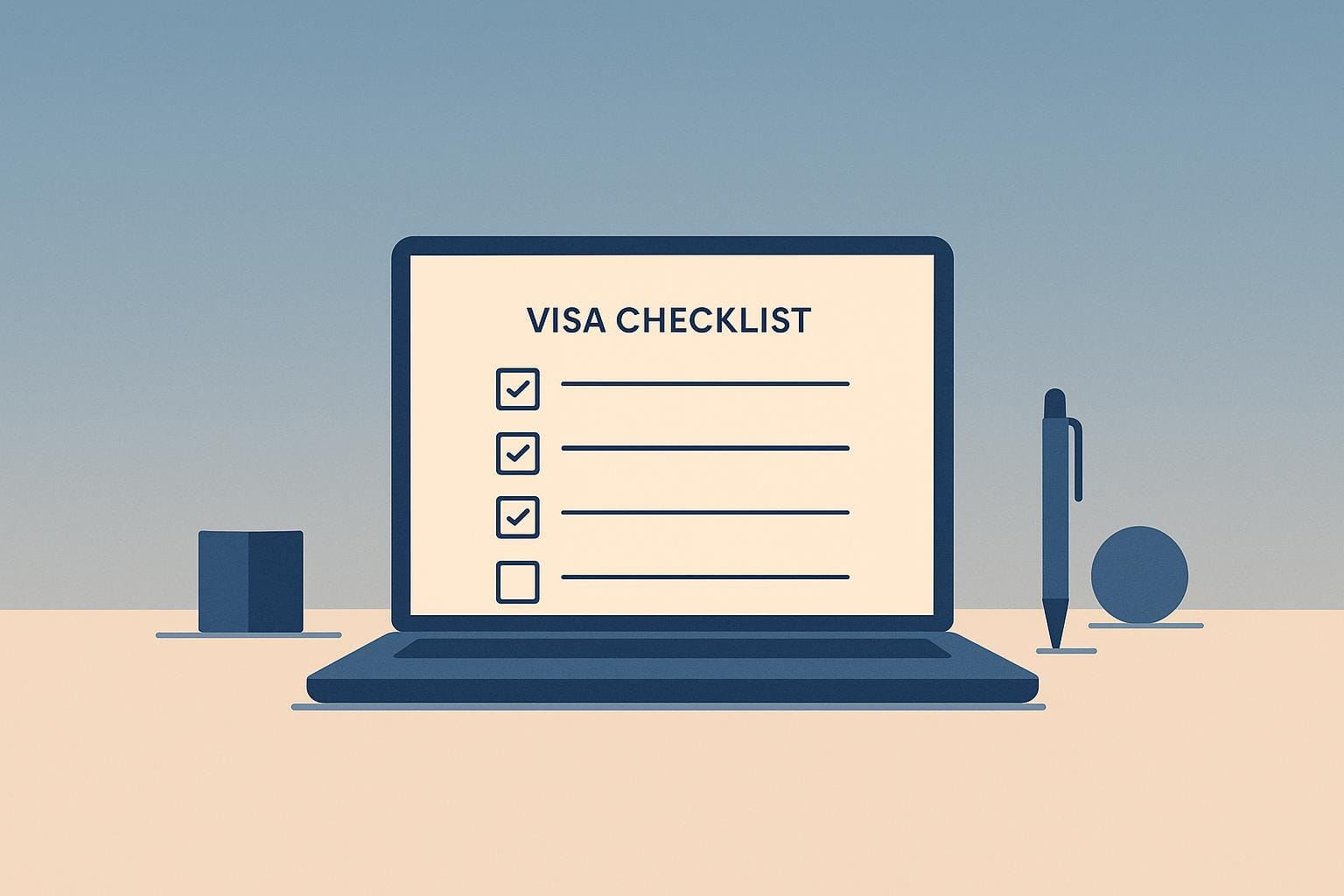Need to fix critical equipment in Nigeria fast? Here's what you need to know about Nigeria's 48-hour Business Visa on Arrival (VOA) for emergency repair teams:
- Purpose: Designed for urgent business visits like equipment repairs in oil, gas, telecom, or manufacturing sectors.
- Key Benefits: Approval in 24–48 hours, fully electronic system, no physical visa sticker needed.
- Eligibility: Non-ECOWAS nationals with a valid passport (6+ months), proof of funds, return ticket, and an invitation letter from a Nigerian company.
- Documents Required:
- Passport with 6 months validity.
- Invitation letter detailing the emergency and host company’s CAC certificate.
- Bank statements (3 months).
- Return ticket and accommodation details.
- Passport photos (specific size and format).
- Application Process: Submit online at evisa.immigration.gov.ng, upload documents, pay fees, and receive approval via email.
Important Updates: As of 1 May 2025, Nigeria now uses a fully electronic visa system. Applications must be submitted online, and clear, high-quality document scans are mandatory to avoid delays.
For emergencies requiring longer stays, consider the Temporary Work Permit (TWP) visa. Double-check all details to avoid errors that could disrupt your travel plans.
Pro Tip: Use automation tools like VisaDoc to streamline the process, reduce errors, and track your application's status in real time.
Who Can Apply and What It's For
Nigeria's 48-hour business visa on arrival is designed to speed up entry for business travellers on legitimate commercial visits. However, it's important to note that this visa is not a work visa. Those planning to take up employment in Nigeria must obtain a separate permit. Below, you'll find details on eligibility criteria and practical examples to help emergency repair teams choose the most suitable visa for their needs.
Qualification Requirements
To ensure a smooth application process, applicants must meet specific requirements. This visa is available to non-ECOWAS nationals and individuals from countries without visa abolition agreements. Applicants need a passport valid for at least six months beyond their intended entry date. They must also demonstrate sufficient funds for their stay, provide proof of return or onward travel plans, and confirm the business purpose of their visit through supporting documents like an invitation letter from a Nigerian company.
For emergency response teams, Nigeria also offers the Emergency/Relief Work Visa (F7K). This single-entry visa, valid for 30 days, is specifically intended for relief workers handling urgent duties.
Common Scenarios for Emergency Repair Teams
The business visa allows for activities such as equipment installation, maintenance, and temporary services for clients or local affiliates. For instance, in industries like oil and gas, even a brief equipment malfunction can cause costly disruptions. Similarly, urgent repairs to telecommunications networks or critical manufacturing systems often require immediate technical expertise. In these high-pressure situations, the business visa ensures repair teams can act quickly to meet operational demands.
For more complex emergencies requiring extended support, the Temporary Work Permit (TWP) visa may be a better option. It's essential to remember that all these visas are strictly limited to business-related activities. They do not allow for permanent employment or the establishment of ongoing work arrangements.
Documents You Need
When applying for a Nigerian business visa for emergency repair work, having the right documents in the correct format is essential. With Nigeria's move to a fully electronic visa system, even small mistakes can lead to delays. Here's a comprehensive checklist to help you stay on track.
Document Checklist
- Passport: Make sure your passport is valid for at least six months beyond your planned entry date and has at least two blank visa pages for processing.
- Invitation Letter: This letter should explain the purpose and urgency of your visit, detail the equipment failure, and confirm your role in fixing the issue. It must also include your host company's CAC certificate.
- Bank Statements: Provide statements from the past three months to show you have enough funds to cover accommodation, meals, and other expenses during your stay.
- Return Ticket: This serves as proof of your intention to leave Nigeria after completing the repairs.
- Accommodation Details: Include a hotel booking confirmation or the full address of your host company if they’re providing lodging.
- Passport Photos: Submit two passport-sized photos (35–40 mm) that meet Nigeria's specific requirements.
Digital Requirements and Compliance
Since 1 May 2025, Nigeria has fully transitioned to an electronic visa system, replacing the visa-on-arrival option. Applications must now be submitted through the official portal: evisa.immigration.gov.ng. Decisions are typically issued within 48 hours, a significant improvement over the previous 10-business-day timeframe.
- Photo Specifications: Photos must be in JPEG or PNG format, with a maximum file size of 240 KB and a resolution of at least 600 dpi. They should be printed on high-quality photo paper with a matte or glossy finish, free of smudges or creases.
- Document Scans: Upload high-resolution scans of your passport, invitation letter, bank statements, and accommodation confirmation. Clear and legible digital copies are crucial, as the automated system processes these directly.
- Visa Categories: The e-visa system now includes 13 short-stay visa categories (30–90 days), tailored for specific needs like emergency repairs.
To avoid complications, keep digital backups of all submitted documents. Organise them in the order specified by the immigration portal, ensuring all names, dates, and company details match perfectly. Even small mismatches can lead to automatic rejections. Taking the time to prepare your documents properly will make the application process much smoother, as detailed in the next steps.
How to Apply Step by Step
Nigeria's electronic visa system has made the application process much simpler, but following the proper steps is essential, especially for emergency repair teams or anyone working under tight deadlines. The process is broken down into three key stages, each of which must be completed in order.
Submit Documents Online
Begin by heading over to the official Nigeria Immigration Service portal at evisa.immigration.gov.ng. Make sure to use this authorised portal exclusively.
Set up an account and fill out the online application form with accurate details about your travel dates and the purpose of your visit. It’s important that every piece of information - names, dates, and company details - matches the supporting documents you’ll be submitting.
When uploading your documents, ensure they are clear, high-quality scans to avoid unnecessary delays. You’ll need to upload your passport, an invitation letter from the Nigerian company, your bank statements (to show proof of sufficient funds), and passport photographs in the specific order requested by the portal.
Pay Fees and Get Receipts
Once your application is completed, proceed to the payment stage. The system accepts major credit and debit cards, provided they support the "Verified by Visa" authentication process.
After you’ve made the payment, print and save the automatically generated receipt. This receipt contains a unique reference number that links your payment to your application . You’ll need to present it at the port of entry along with your visa approval letter.
Processing Times
With your payment receipt in hand, the processing timeline officially begins. For short-stay business visas, Nigeria’s electronic visa system typically processes applications within 24 to 48 hours . In general, business visa applications are processed within 2–3 working days after submission.
If you’re dealing with an emergency, keep a close watch on your email to avoid missing any updates. The visa approval letter will be sent as a PDF attachment, so make sure to print and carry it with you when travelling. If you don’t receive confirmation within the expected timeframe, check your spam folder and double-check that you entered your email address correctly during the application process.
Rules and Best Practices
To make the most of Nigeria's 48-hour visa, careful attention to detail is key. Rushing through the application process can lead to errors that may delay approval and defeat the purpose of the expedited timeline.
Common Mistakes to Avoid
Accuracy is everything when filling out your application. Every detail must align perfectly with your supporting documents - whether it's names, dates, or other specifics. Even small errors can result in additional reviews and delays.
When submitting financial documentation, provide a full picture of your financial status. This means recent bank statements, salary slips, and other relevant proof - not just a single bank statement.
Don’t forget your yellow fever vaccination certificate. Entry can be delayed if this document is missing, and the vaccination must have been administered at least 10 days before your travel date to be valid.
For technical teams, a generic invitation letter won’t cut it. You’ll need to include detailed technical documentation, such as equipment specifics, failure reports, and correspondence that explains why local technicians can’t handle the issue. This helps substantiate the purpose of your visit.
Ensure that all scans you upload are clear and free from shadows to avoid issues during the application process.
Finally, maintaining accurate digital records can significantly simplify the visa application process and reduce the risk of errors.
Keep Digital Records
Well-organised digital systems can save time and reduce compliance risks. In fact, optimised HR systems retrieve documents 72% faster and cut compliance issues by 30%.
Set up a centralised, cloud-based storage system for all visa-related documents. This should include everything from approved visas and supporting documents to payment receipts, correspondence with Nigerian authorities, and records of amendments or extensions. Ensure this system is secure and accessible to your HR and travel teams.
Adopt consistent naming conventions for files, such as:
Nigeria_Visa_[Employee_Name][Date][Document_Type]. This makes it easier to locate specific documents when needed.
Regularly back up all visa documentation. Scan important paper records and store them digitally, ensuring your storage system includes redundancy features to prevent data loss.
To protect sensitive employee information, implement access controls and activity tracking. Only authorised personnel should have access to visa documents, and the system should log who accessed the data and when.
Conduct periodic audits of your documentation system to ensure it’s up-to-date and compliant. These reviews can catch missing documents, expired certifications, or inconsistencies before they cause problems.
Automated reminders are a lifesaver for staying on top of deadlines. Set alerts for expiring passports, yellow fever vaccination renewals, and visa validity periods to avoid last-minute scrambles when emergencies arise.
Automation Tools and Workflow Improvement
Building on earlier discussions about digital documentation, automation is now transforming visa processing for emergency teams. Manual visa handling often creates bottlenecks for repair teams working under tight deadlines, but automation simplifies and speeds up the process, making it far more efficient.
VisaDoc Features

VisaDoc, an AI-driven platform, addresses the unique challenges HR and corporate travel teams face when managing urgent visa applications. Launched in February 2025, it’s tailored specifically for scenarios requiring rapid business travel.
VisaDoc’s intelligent document management system automatically organises visa-related documents, complete with version control. This ensures that the latest scans and certificates are always at your fingertips.
With automated status tracking, you receive real-time updates on the progress of visa applications. The system integrates directly with official channels, so you can see exactly where each application stands without manual follow-ups.
For emergency situations - like oil rig breakdowns or telecom service interruptions - VisaDoc offers customisable workflows. These workflows are pre-configured to handle specific document requirements and approval processes, activating automatically when an emergency visa request is submitted.
Another standout feature is automated error detection, which scans applications for common issues such as mismatched names, missing signatures, or incorrect date formats. By catching these errors before submission, the system helps avoid delays that could disrupt urgent travel plans.
"VisaDoc's AI technology automates key visa processing functions, including: Visa application assistance for business travelers and corporate employees. Document verification to ensure compliance with global visa regulations. Automated error detection to reduce delays and rejections."
The platform also includes deadline and compliance alerts, which monitor key dates like passport expirations, vaccination validity, and visa deadlines. Automated reminders are sent to team members well in advance, ensuring no critical detail is overlooked. Meanwhile, the centralised dashboard provides HR managers with a clear overview of all active visa cases, making it easier to prioritise urgent applications and allocate resources effectively.
Benefits of Automated Workflows
These features bring noticeable improvements to workflows, particularly in emergency scenarios. While manual visa management might work for routine travel, it often leads to delays and added administrative stress during critical situations. Automated workflows eliminate these bottlenecks by flagging issues within minutes - an invaluable advantage when working within Nigeria's tight 48-hour processing window.
Reducing errors is another key benefit. The system pulls information directly from employee profiles and pre-verified documents, ensuring consistency and minimising mistakes that could hold up applications.
The platform also shines in compliance management, especially for businesses operating across multiple jurisdictions. VisaDoc’s built-in compliance checks adapt to evolving Nigerian regulations, reducing the risk of last-minute rejections during emergencies.
For companies handling frequent emergency deployments, the time saved adds up significantly. HR teams can shift their focus from repetitive administrative tasks to more strategic planning, while the improved accuracy reduces the financial and emotional strain of rejected or delayed applications.
"Automation frees professionals to concentrate on client service instead of admin tasks."
Another helpful feature is the client self-service portal, which allows technical staff to update their own information and upload necessary documents. This reduces the administrative burden on HR teams, particularly when time is of the essence.
VisaDoc also integrates seamlessly with existing HR systems and travel booking platforms, creating a smooth workflow from the moment an emergency is flagged to visa approval and travel arrangements. This end-to-end automation ensures no critical step is missed when every second counts.
Conclusion
Nigeria's 48-hour business visa on arrival plays a vital role for emergency repair teams, but its success depends on careful planning and precise documentation. With such a tight timeline, even small mistakes - like incomplete forms, missing invitation letters, or insufficient proof of funds - can throw urgent plans off track.
To avoid setbacks, double-check every detail of your application. Ensure spellings are correct, passport details match, and all necessary documents are included. Visa fees typically range from £80 to £250, varying based on nationality.
Health requirements are equally important. Travellers must meet health standards, including up-to-date yellow fever immunisation and adherence to COVID-19 protocols, to avoid being turned away at the border. Additionally, leaving Nigeria requires proof of lawful entry, such as a valid visa and entry stamp. Following these procedures precisely is essential to ensure a smooth process.
Automation tools, like VisaDoc, can be a game-changer here. They simplify workflows and help reduce errors by managing documentation efficiently. This combination of thorough preparation and automated support can make all the difference in meeting urgent deadlines.
FAQs
What are the key mistakes to avoid when applying for Nigeria’s 48-hour business visa on arrival?
When applying for Nigeria's 48-hour business visa on arrival, even small mistakes can lead to delays or rejection. To keep things on track, make sure every detail in your application matches your supporting documents. Inconsistencies can raise red flags. Also, double-check that you're applying for the correct visa type - choosing the wrong category could complicate things.
Have all your paperwork ready before you apply. This includes a valid passport, proof of sufficient funds, and any necessary business-related documents, like invitation letters. It's also a good idea to understand Nigeria's entry requirements ahead of time and leave enough time for processing. A bit of preparation can save you from unnecessary stress at the border.
How does Nigeria's electronic visa system simplify urgent applications for emergency repair teams?
Nigeria's fully electronic visa system simplifies the application process for emergency repair teams, cutting down processing times considerably. With applications submitted online, there's no need for in-person visits, making it quicker to secure approvals for urgent travel.
This approach lets repair teams concentrate on their essential work instead of being bogged down by lengthy paperwork. By allowing remote submissions and approvals, the system ensures a smoother entry process for critical, time-sensitive operations.
What details must be included in the invitation letter for a Nigerian business visa application?
When applying for a Nigerian business visa, the invitation letter plays a crucial role. It must include the host's full name, address, and contact details, along with their passport number and their relationship to the visitor. The letter should also specify the purpose of the visit, the intended arrival and departure dates, and confirm that the host is taking on immigration responsibility for the visitor.
The host needs to sign the letter, and it may also require additional documents, such as a copy of the host's Nigerian passport or residency permit, evidence of sufficient funds, and details about the visitor's accommodation, whether it's a private residence or a hotel booking. Providing accurate and complete information in the letter can help prevent unnecessary delays in the visa approval process.
Related Blog Posts
- Business Visa Processing Times: Country-by-Country Guide
- UAE Business Meeting Visa Express: 14-Day Entry Options for Executive Delegations
- Site Inspection Visits to Manufacturing Facilities in Vietnam: Business Visa Documentation Requirements
- Schengen Quick Entry: 72-Hour Business Meeting Visa Options for Urgent Corporate Travel



